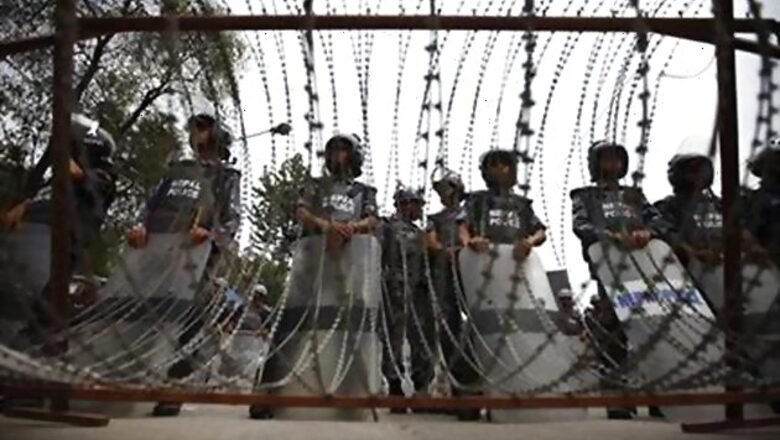
views
Kathmandu: Nepal's warring political parties said on Sunday they had failed to narrow their differences sufficiently to agree on a new constitution for the Himalayan republic before a midnight deadline, plunging the country into fresh political turmoil.
A new constitution was widely seen as crucial to ending the instability that has plagued Nepal since the end of a Maoist-led civil war in 2006 and subsequent overthrow of the monarchy, but it has long been thwarted by demands for the country to be divided into states along ethnic lines.
The debate has sparked violent protests in recent weeks and ethnic groups have staged demonstrations near the parliament building where a Constituent Assembly of politicians had until midnight on Sunday to end its haggling and agree on the charter.
"It is not possible to promulgate the new constitution within the deadline now. That possibility is out, 100 percent," senior Maoist leader Post Bahadur Bogati told reporters after a meeting with other political parties in the capital, Kathmandu.
Negotiators said the cabinet would now have to decide between various courses of action, including declaring a state of emergency under which the life of the current parliament would be extended for six months, and calling a fresh election.
More than a dozen people were injured after protesters tried to break a security cordon outside the parliament, prompting the police to baton charge the demonstrators and fire teargas, police spokesman Binod Singh said.
Rallies have been banned around key government buildings as the clock ticked towards the deadline. The Rajdhani daily said the army was on high alert and ready to step in if police failed to maintain security in the capital.
Prolonged instability in Nepal, which sits on the source of rivers that supply water to millions in South Asia, could suck neighbours China and India into competition for influence there. Both are important aid donors and trade partners for Nepal.
Diplomats say that because of its political uncertainty Nepal has failed to exploit the export potential presented by the rapid growth of its giant neighbours and investors have avoided the country. The economy grew by 3.5 percent last year, its lowest rate in four years.
The new constitution was to have been a key part of the peace deal struck with the Maoists to end their revolt. However, the assembly has already missed several deadlines for the charter because of deep divisions over the number, boundaries and names of the nation's states.
The assembly is dominated by the Maoists, who waged their revolt on a pledge to empower the country's many ethnic groups after centuries of exclusion and discrimination.

















Comments
0 comment